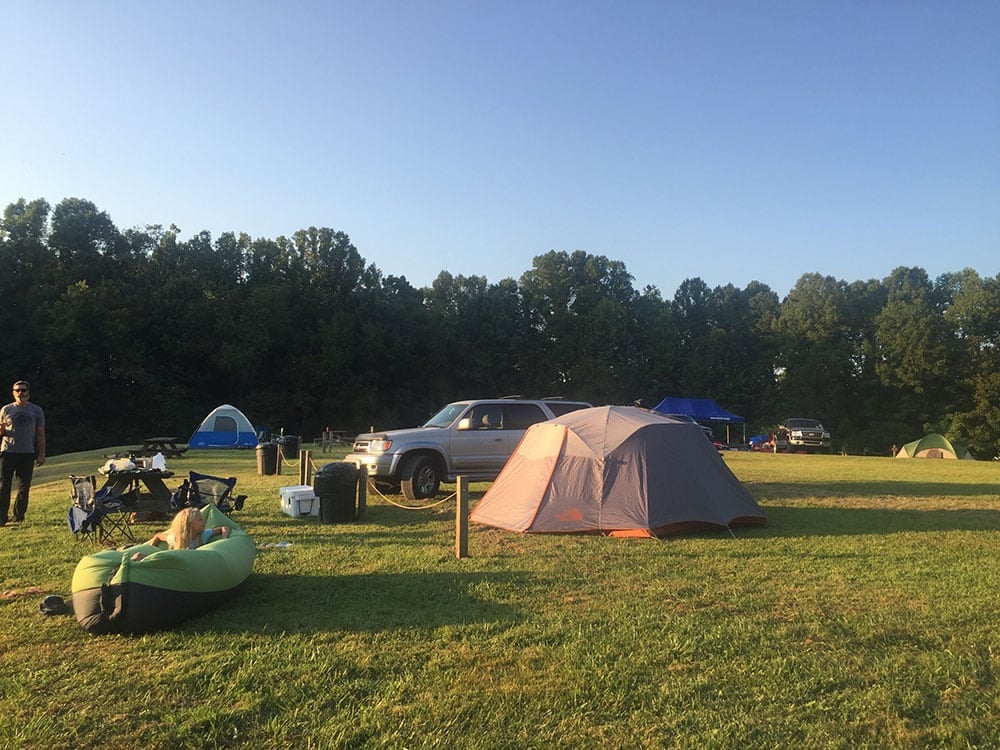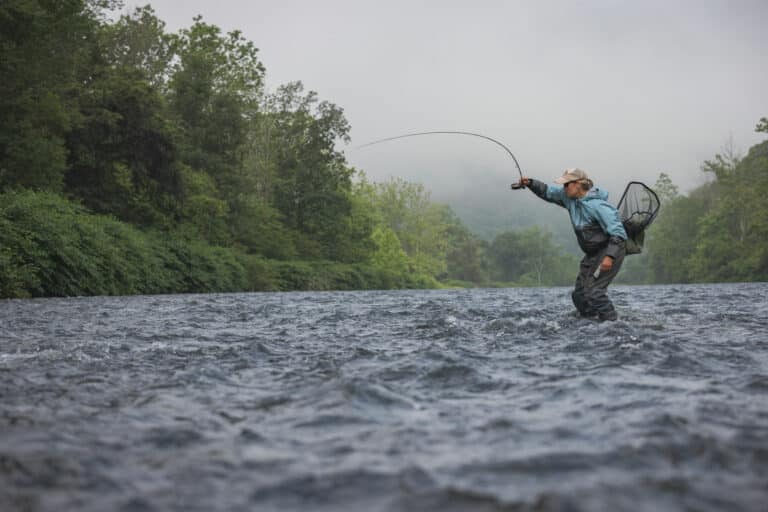The comfort of keeping an old tent
As a general rule, I don’t think it’s healthy to get emotionally attached to anything that doesn’t have a soul, or at the very least, can’t wag its tail at you when you walk through the door. I’m talking about stuff. Inert, lifeless stuff like backpacks and bicycles. And yet I have a track record of falling in love with certain pieces of gear, to the point where I’m blind to their obvious faults and actually offended when someone suggests I upgrade. Why would I get a new puffy jacket? Just because all of the down has fallen out of this one and it has so many patches I look like a NASCAR driver? But I was wearing this jacket the first time I got frostbite! I can’t just get rid of it. We’ve seen things together!
It’s possible that I’m not rational.
It probably all started with the tent I took camping during high school. It wasn’t even my own tent—it was my best friend John’s tent, a spacious and heavy canvas thing that seemed like it slept 18 and looked like the tents Hawkeye lived in on M.A.S.H. In my mind, my friend’s dad smuggled the tent home from Vietnam. It’s not true—he probably bought it at the Army Surplus store—but that’s the story I told myself. I’ll never forget the smell of mildew and cigarettes, but the thing I remember most about this tent was how hard it was to pitch. It took several of us working in unison with my buddy John orchestrating the thing like a conductor. One of the tent poles was broken and held together with duct tape. It was seven feet long and couldn’t be folded, so we drove to the campsite with it sticking out the car window. One time, I borrowed the tent and went camping without John, but we couldn’t figure out how to pitch the damn thing without his orchestrating, so we just slept on top of it.
I was reminiscing about that beater of a tent recently while car camping with my own family on the edge of Lake Hiawassee, where Georgia and North Carolina share a watery border. It was the sort of trip where nothing went right. We got a late start because my kids had baseball or volleyball or soccer or some other team sport that takes up 99% of our free time, so we pulled into camp with just enough daylight to pitch the tent before the sun set. Or if you’re a “half-empty” kind of person, we got there just in time to experience the rain storm that would settle in for the next several hours. The campsite saw biblical levels of flooding and I cooked bratwurst in the rain while everyone else huddled in our tent, a four-person model from The North Face that we’ve had for almost 20 years. The crazy thing about this tent is that it’s been shrinking steadily over those two decades. At least, that’s what it feels like; every time we go camping, our kids are a little bigger and take up a little more space. This last time, in the rain at Lake Hiawassee, my family was busting at the seams of this four-person tent, which might explain why it started to fall apart on us.
But because of my emotional attachment, I can’t just get rid of this tent.
First, the Velcro straps that hold the rain fly to the tent poles delaminated. Just pulled right off the inside of the fly. Then, one of the door zippers started peeling off. We’ve patched a few holes over the years, but apparently holes are contagious ’cause there are new ones. And if I’m being honest, the tent doesn’t necessarily keep the rain out anymore, as much as suggest strongly that the rain stay out.
I don’t blame The North Face. The tent was a quality item, but it’s lived its entire lifespan in the Southern Appalachians, which is essentially a large humidor, so of course the tent is suffering from jungle rot. And I don’t begrudge the tent for finally failing. We all get old, our edges delaminating, our zippers peeling off. We collect holes. It’s the cycle of life.
But because of my emotional attachment, I can’t just get rid of this tent. There’s too much history here. We took our kids on their first camping trip in this tent. This is the tent we retreated to when our three-year-old son grabbed the wrong end of the fire poker stick. This is the tent my wife and kids sheltered in during a hailstorm in Great Smoky Mountains National Park. Three different family dogs have slept and shaken off lake water in this tent.
Ideally, I’d have a personal museum where retired pieces of gear would go on display so I could reminisce about all of our good times together. “Kids, look, this is the original hardtail mountain bike with the ancient geometry that I was riding when I dislocated my shoulder for the third time!” I’m not suggesting the museum would be anything ostentatious—two or three floors with tastefully lit displays and informative plaques. I could hold open houses and give tours to the general public once or twice a week.
Or better yet, I can give this tent a Viking funeral, setting it adrift on a wooden boat in the middle of the lake and setting fire to it with flaming arrows. The family could take turns sharing their favorite memories of the tent, letting go of our shelter in a dignified blaze of tears, whiskey, and fire.
But my wife had a better idea. We’re going to save The North Face tent, stashing it away until our kids are in high school and start venturing out on their own camping trips with their friends. They’ll learn the nuances of setting it up—how the rain fly just sits precariously on top of the poles because the Velcro doesn’t work anymore. They’ll use duct tape in strategic places to hold it together, just like we used duct tape to hold John’s tent together. And maybe it will be so frustrating that they won’t even bother pitching it some nights. They’ll just sleep on top of it, just like we did back in the day. And they’ll get emotionally attached to it the same way I grew emotionally attached to John’s tent, and everything will come back full circle. And when my kids have kids, they’ll recant stories about their dad’s crappy family tent, the one they used when they were teenagers, the one that smelled like wet dog and let in at least half of every rainstorm.
Cover Photo: Photo Courtesy of the Author







